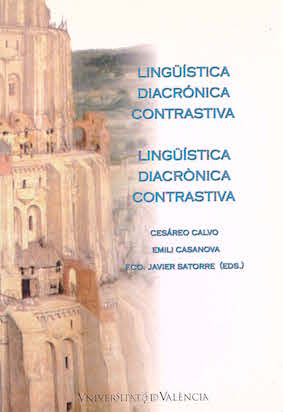El règim verbal: Anàlisi constrastiva català-castellà
DOI:
https://doi.org/10.7203/qfilologia.9.5121Paraules clau:
sintaxi, variació lingüística, datiu, acusatiu, règim verbal Resum
Resum
Aquest article se centra en l'estudi del règim verbal de dues llengües romanç, el català i l'espanyol. En concret, s'analitzen les coincidències i les divergències que existeixen en la selecció de datius i acusatius. Així mateix, s'estudien les alternançes en la selecció del règim des d'un punt de vista dialectal. Segons el comportament que posen de manifest els verbs afectats. L'autor els classifica en dos grups: els agentius i els psicològics. en els primers, la tendència conservadora consisteix a mantenir el règim datiu i la innovadora a reinterpretar-ho com un acusatiu. En els segons, es produeix generalment el cas contrari: d'un règim acusatiu es passa a un datiu. aquests processos de canvi de règim no es manifesten en tots els verbs de la mateixa manera i, generalment, responen a processos evolutius localitzats en determinades zones dialectals.
 Descàrregues
Descàrregues
Descàrregues
Publicades
Com citar
-
Resum547
-
PDF (Español)689
Número
Secció
Llicència
 Este obra está bajo una licencia de Creative Commons Reconocimiento-NoComercial-SinObraDerivada 4.0 Internacional.
Este obra está bajo una licencia de Creative Commons Reconocimiento-NoComercial-SinObraDerivada 4.0 Internacional.
Tots els documents inclosos a OJS són d'accés lliure i propietat dels seus autors i/o institucions editores, i per tant, qualsevol acte de reproducció, comercialització, comunicació pública o transformació total o parcial necessita el consentiment exprés i escrit d'aquests.
Authors who publish with this journal agree to the following terms:
- Authors retain copyright and grant the journal right of first publication with the work simultaneously licensed under a Creative Commons Attribution License that allows others to share the work with an acknowledgement of the work's authorship and initial publication in this journal.
- Authors are able to enter into separate, additional contractual arrangements for the non-exclusive distribution of the journal's published version of the work (e.g., post it to an institutional repository or publish it in a book), with an acknowledgement of its initial publication in this journal.
- Authors are permitted and encouraged to post their work online (e.g., in institutional repositories or on their website) prior to and during the submission process, as it can lead to productive exchanges, as well as earlier and greater citation of published work (See The Effect of Open Access).



